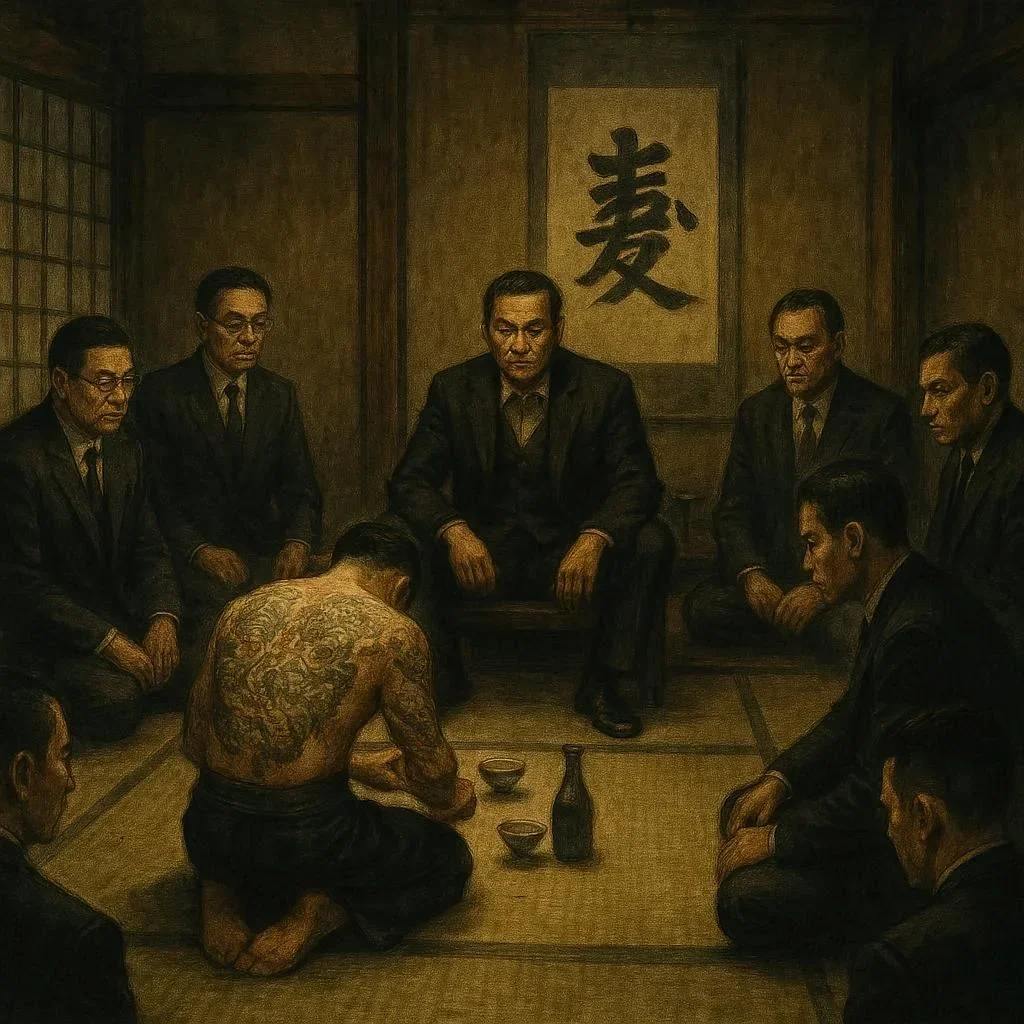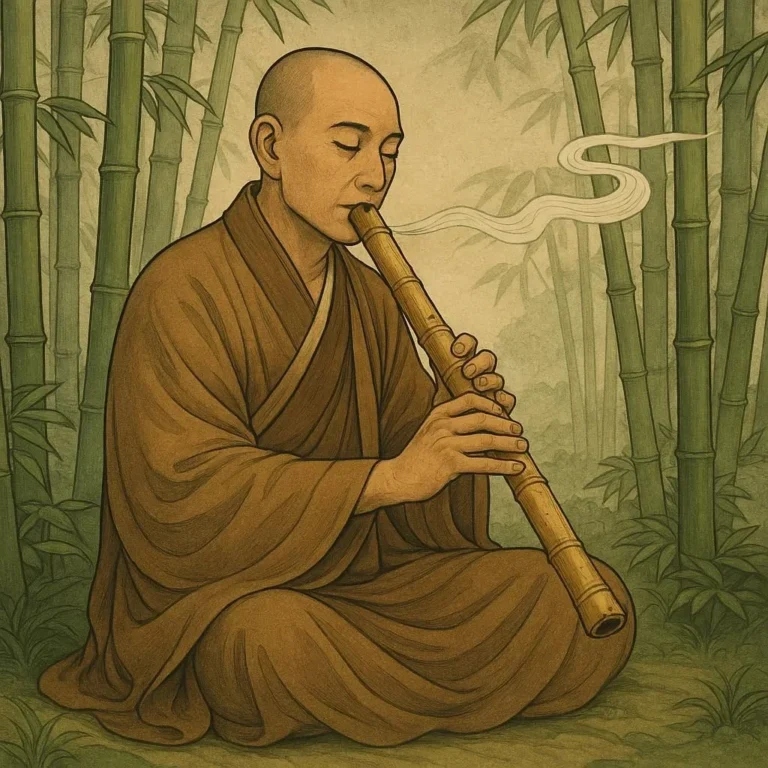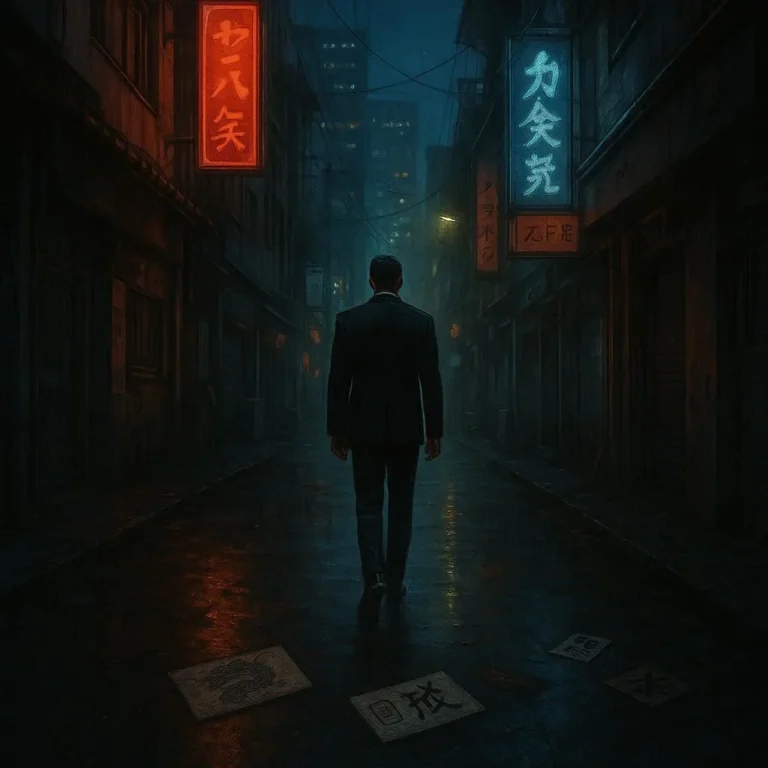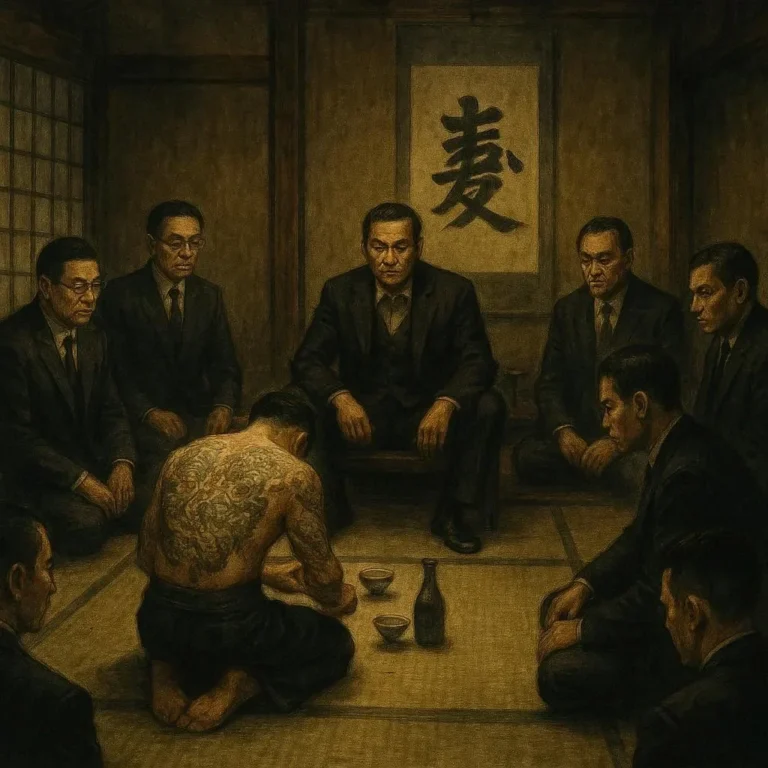508 views Yakuza and the Art of Secrecy: Loyalty Beyond Law
For decades, the Japanese underworld has fascinated outsiders and insiders alike. The Yakuza, often shrouded in filmic mystique and headline drama, can be best understood through its profound devotion to secrecy and loyalty—values that transcend ordinary legal boundaries. In this deep‑dive, we illuminate how the organization’s coded rituals and social contracts shape a hidden society that thrives on both tradition and cunning.
The Origins of a Secret Brotherhood
The modern Yakuza traces its ancestry to the yakuza of the Edo period (1603–1868). Two distinct groups, bakuto (gamblers) and teishitsu (street hawkers), emerged after the 1648 prohibition of gambling in Japan. These groups banded together for protection, pooling knowledge and funds for mutual survival. As they grew, they adopted a code of conduct that emphasized loyalty and secrecy, qualities that have survived to the twenty‑first century.
The age‑old phrase “Yakuza no waigaku”—the Yakuza’s philosophy of loyalty—was codified in the medieval Gintaku code, where a member could be called “himpi”. The code espoused respect for hierarchy, fidelity to one’s oyabun (boss) and kōban (innermost circle). This foundation would transform once the empire modernized, but it remained the central pillar of all Yakuza factions.
The Code of Secrecy: How Silence Wins
Secrecy is not an accidental byproduct of criminality—it is systemic. Yakuza ideology treats secrecy as a strategic asset and a moral duty. Historically, secrecy was necessary to avoid internal fragmentation and external legal pressure. Yet, the structure of secrecy today is far more sophisticated.
1. Enforced Silence through Rites
From initiation rites to regular kashikomi meetings, members are taught that every whispered word can be a regime‑altering revelation. Texts such as “The Patron’s Way” and “The Silent Hand” are disseminated exclusively within tight circles. The robes of yukata worn during meetings can hold hidden symbols, reinforcing a culture where “showing a face” is both literal and figurative.
2. Offline Communication Channels
Unlike crime gangs that rely on internet anonymity, the Yakuza uses handwritten notes, coded postcards, and old‑school fax lines. These offline channels are almost immune from modern surveillance. In the 1990s, investigators discovered that much of the Yakuza’s narcotics distribution was orchestrated through cooperative relay with landlines, exploiting the redundancy of Japan’s telephone infrastructure.
3. Public Face – Private Reach
The group maintains the façade of legitimate businesses—construction, real estate, securities—to query banks, secure subcontracts, and forge social bonds. These businesses serve as cover but also as a conduit for kikō (secret support). By leveraging public ventures, the Yakuza embed into everyday life, turning neighbors, landlords, and even religious officials into inadvertent allies. This public‑private matrix remains a hallmark of their secret‑keeping prowess.
Loyalty Beyond Law: From Familial Duty to Corporate Power
While secrecy gives the Yakuza operational advantage, loyalty is the glue that holds them together. Their bōshi (generosity) rituals reinforce bonds that transcend legal codes.
A. The Oyabun–Kobun Hierarchy
At the core of the loyalty structure is the oyabun-kobun relationship—boss‑protege. The oyabun is not a mere crime boss; he acts as a godfather, landowner, and patron. In return, the kobun swears absolute fidelity, providing labor, funds, and muscle. This system channels all power through the oyabun, ensuring a chain of command that is unbreakable without external interference.
B. Family–Organized Networks
In many Yakuza circles, fama (family) is defined by marriage, not blood. Marriages between families cement alliances and guarantee loyalty beyond the organized crime sphere. A romantic or economic alliance can create a dobu—a bond you cannot break without risking debt or honor. Traditional rituals, such as *maiden *hōshi* (hatsukoi) and *marriage ceremonies at temple *sōsen* (ceremonies), are executed with religious significance, thereby binding the participants to the group’s code.
C. Corporate Influence
By infiltrating corporate Japan, Yakuza members manipulate city planning, labor disputes, and supply chains. Loyalty there goes beyond the sword; it is industrial. A construction company might refuse to work for a rival or a supply chain might be spied upon if the party refuses to adhere to the yakuza’s directives. Thus, loyalty becomes a currency that can be traded for market dominance.
Modern Adaptations: Secrecy in a Digital Age
The 21st‑century Yakuza have had to adapt to the explosion of digital monitoring. Nevertheless, they have not abandoned their age‑old techniques. Instead, they have evolved.
Encrypted Messaging – While early Japanese law enforcement could intercept 60% of open network traffic, Yakuza operatives now use older, legacy communication services that are rarely flagged by modern antivirus software.
Red Tape as Code – Official bureaucracy is infiltrated by Yakuza members – passing kaishō (writing) tests and obtaining hōkaku (certifications). These acts act as both cover and code encryption.
Social Media Silence – Instead of online exposure, Yakuza members keep their social media profiles minimal. They employ public‑hostility forums for the elite, where messages are only deciphered by those in the inner circle.
Despite these advancements, the Yakuza remains an inherently stealthy organization. In 2023, authorities found a group of members deliberately using bad connections to obfuscate their steps, ensuring any potential cyber‑trace would be lost in a final approach of a low‑bandwidth, high‑latency connection.
Cultural Allure – Films, Literature, Reality
At the heart of the Yakuza’s loyalty and secrecy is a cultural moat. Movies such as “Yojimbo” and “Coup de Grâce” capture this seduction, portraying them as chivalric figures in a world of abstract moral ambiguity.
Literature also offers an inside view. Hiroshi Saito’s “Tōgeirō The Secret Branch” offers prolific insight into how Yakuza leaders keep records hidden in intricate shikaku (ft. ellipses). These narratives transform the Yakuza into living folklore, making it harder for public perception to ignore their existence.
The fascination does not merely come from the law‑breakers ethos; it is their rigorous codes and the paradoxical view of “honor” crossing over into criminal landscapes.
The Moral Crossroad – Power vs. Obedience
Loyalty to a secret society is paradoxical. Members are bound to a code that can conflict with general law. Every day, they manage the consequences of those conflicts.
The Yakuza’s inkō (matrix) informs us that decisions are not made in a vacuum; they weigh impact, personal honour, and group stability. What follows is a moral calculus where the bottom line is “the survival of the group.” Our perception of loyalty here is not about familial or romantic fidelity but an allegiance to the dōshin—the way of the moral body—which, for Yakuza, belongs exclusively to the gang.
What Modern Business Can Learn from Yakuza Loyalty
- Clarity in Values – Defining core principles and holding to them at all costs keeps teams aligned. The Yakuza’s bōshi exhibits a constant distribution of resources for group well‑being.
- Strong Hierarchical Echoing – A clear chain of command reduces ambiguity. Although toxic in Yakuza, in business, 1‑on‑1 interactions can pass the “blue print” better.
- Secrecy around Strategic Moves – Even in the age of transparency, certain test cases or innovation processes require confidentiality to protect intellectual assets.
Yet, it is imperative to remember that the Yakuza’s heritage is an example of criminal fidelity, not an endorsement.
Closing Thoughts
Yakuza’s heritage is steeped in secrecy and unwavering loyalty—twins that have survived and evolved across centuries. Their combined force has built an enormous underground economy, a modern mystique given equal weight in historical and contemporary narratives. By dissecting their secrecy and loyalty mechanisms, we not only illuminate a clandestine world but also gain a lens to examine our own institutional ethics, power structures, and the balance between individual responsibility and collective allegiance. Ultimately, the Yakuza remains a paradox: a human phenomenon that embodies the finest discipline and the most seething dark side of obedience, beyond the scope of the law.






